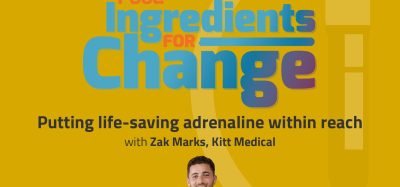Vegetables and fish could promote heart health
- Like
- Digg
- Del
- Tumblr
- VKontakte
- Buffer
- Love This
- Odnoklassniki
- Meneame
- Blogger
- Amazon
- Yahoo Mail
- Gmail
- AOL
- Newsvine
- HackerNews
- Evernote
- MySpace
- Mail.ru
- Viadeo
- Line
- Comments
- Yummly
- SMS
- Viber
- Telegram
- Subscribe
- Skype
- Facebook Messenger
- Kakao
- LiveJournal
- Yammer
- Edgar
- Fintel
- Mix
- Instapaper
- Copy Link
Posted: 12 November 2018 | New Food | No comments yet
Consuming vegetables and fish increase TMAO levels in the blood, which could lead to a decreased risk of hypertension related heart disease.


Increased levels of TMAO, trimethylamine N-oxide, could result in a reduction in hypertension related heart disease symptoms. TMAO is linked to the consumption of fish, seafood, and a primarily vegetarian diet.
After eating foods rich in TMAO, such as fish and vegetables, the levels of TMAO in the blood are significantly elevated, and the liver produces TMAO from TMA, trimethylamine (made by the gut bacteria).
The cause of heightened levels of TMAO in the blood and the effects on the heart and circulatory system are unclear. It was initially thought that high levels of TMAO in blood plasma increases the risk for heart disease, and usually occurred after consuming red meat and eggs.
During studies on animal models, researchers have found that low dose treatment with TMAO reduced cardiac fibrosis, the thickening of the heart that leads on to heart failure.
The researchers, at the Medical University of Warsaw in Poland and the Polish Academy of Sciences, mentioned how, “it seems that a fish-rich and vegetarian diet, which is beneficial or at least neutral for cardiovascular risk, is associated with a significantly higher plasma TMAO than red meat- and egg-rich diets, which are considered to increase the cardiovascular risk.”
The researchers studied the effect of TMAO on rats that have a genetic tendency to develop high blood pressure (spontaneously hypertensive rats). One group of hypertensive rats was given low-dose TMAO supplements in their drinking water, and another group received plain water. They were compared to a control group of rats that does not have the same genetic predisposition and received plain water. The dosage of TMAO was designed to increase blood TMAO levels approximately four times higher than what the body normally produces. The rats were given TMAO therapy for either 12 weeks or 56 weeks and were assessed for heart and kidney damage and high blood pressure.
The team mentioned how the study provides evidence for a potential beneficial effect of an increase in plasma TMAO of pressure-overloaded hearts. They also stated that further study is needed to assess the effect of TMAO and TMA on the circulatory system in the body.
The study was published in the American Journal of Physiology – Heart and Circulatory Physiology.
Related topics
Food Safety, Health & Nutrition, Sustainability, The consumer









